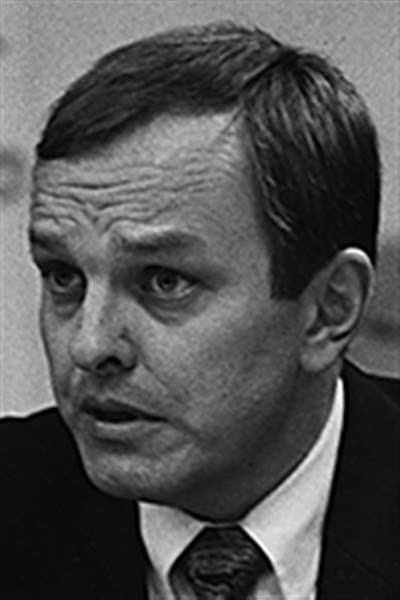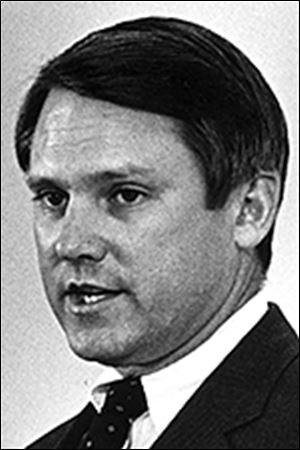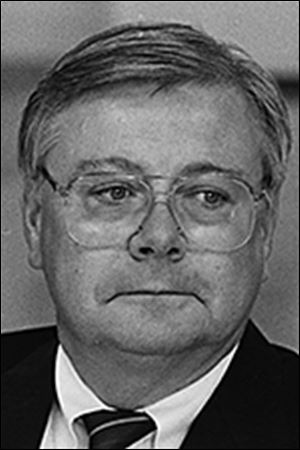
Ex-city managers: Old system eased Toledo mayors’ burdens
8/5/2014
Hoover
THE BLADE
Buy This Image
It’s been a hectic last three days for Toledo Mayor D. Michael Collins as he dealt with a public water crisis while continuing his other obligations to run the city.
But three former Toledo city managers say if the city had remained under a council-manager form of government, perhaps the mayor’s burdens would be less.

Hoover
“That’s what a professional city manager does. We remain apolitical and can do what the city council wants. It’s the council’s job to legislate and our job to implement,” said Toledo’s last city manager, Tom Hoover, who ran the city from 1990 to 1993 under former Mayor John McHugh.
Mr. Hoover, now the manager for Coventry, R.I., said he is not criticizing Mr. Collins or even Toledo’s strong mayor system of government.
“I’m just a big believer that the professional city manager is the very best form of government. I’ve studied all forms, and I have a master’s in public administration. I’ve witnessed both council-manager and strong mayor, and I think council-mayor is best,” Mr. Hoover said. “Of course, I have a bias,” he added.
Mr. Hoover and two other former managers said that while a mayor has operational, political, and ambassadorial duties to a city, the manager’s sole responsibility is day-to-day operations, often running it like a business.

Boston
David Boston, city manager from 1981-1985 under Mayors Doug DeGood and Donna Owens, said with a manager’s businesslike approach, it becomes less likely that unqualified people will be appointed to various positions or remain there.
“And that should be the case under the strong mayor form of government too,” he said. “Water and sewer are vital functions to a city, and you need to have qualified people in those positions.
“It should be no-brainer, although I’m sure at times there have been considerations for positions other than just qualifications,” Mr. Boston said.

Porter
J. Michael Porter, who was city manager from 1979 to 1981 under Mr. DeGood, said from a mayor’s perspective, having a city manager not only relieves the top elected officeholder of some daily duties, it also provides a mayor with some political cover.
“When I heard about this, I said to my wife, ‘Thank God I wasn’t city manager when that happened. There would be nowhere to hide,’” said Mr. Porter, who is retired and now resides in Hilton Head, S.C.
“If this would have occurred under a city manager, there’d be people running for cover. But the mayor could say, ‘Hell, that’s the manager’s job,” Mr. Porter said.
Mr. Porter said when Toledo approved the a strong-mayor form of government in 1993, it became common to see large administrative changes after every election.
But there are certain departments that rarely change personnel no matter who wins the election.
“The things you didn’t screw around with were water, sewer, and the enterprise funds. Those were sacrosanct.
“You tried to get as good as people as you could and hope for the best,” Mr. Porter said.
Contact Jon Chavez at: jchavez@theblade.com or 419-724-6128.